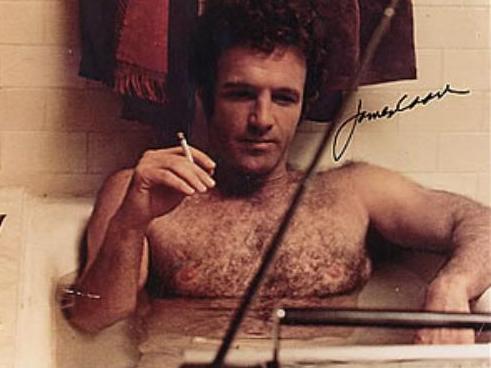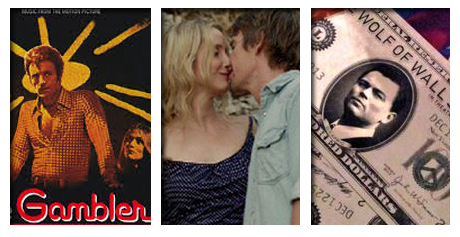Margaret here, reporting from the LA festival beat with short takes on some would-be Oscar contenders.

The Gambler
Screenwriter William Monahan (The Departed), director Rupert Wyatt (Rise of the Planet of the Apes), and star Mark Wahlberg joined forces on this remake of the 1974 James Caan movie of the same name, and the result is certainly stylish. It's well-shot, coolly assured, and smartly paced. Wahlberg leads the movie capably as Jim Bennett, a man from a rich family with a solid career who has nonetheless dug himself to rock bottom with extravagant compulsive gambling.
The film is at its best when it engages with the question of why someone whose life is granted so much privilege so systematically pisses it all away. John Goodman, typically scene-stealing as a dangerous loan shark, makes many salient points about Jim's decisions, which are either self-destructive or indefensibly stupid. To its detriment, the film ultimately succumbs to the impulse to romanticize its protagonist, asking the audience to cheer and respect him when he finally makes his first sound decision.
The supporting cast is largely excellent; it will surprise no one that Jessica Lange wrings every ounce of personality, pathos, and curdled maternal affection from her few minutes of screentime. Even so, she makes little impact on the movie because, like the protagonist, it brushes her away. The Gambler can claim the dubious achievement of completing the Stock Female Character hat trick: (1) a maternal figure who exists to thanklessly prop up the male lead, (2) a pretty young thing (Brie Larson) who we're told is a stone-cold genius, but is given no development arc and has inexplicable romantic interest in the lead, and (3) a passel of nameless and faceless strippers. Slow clap.
These are not deal-breakers for every moviegoer, but they're emblematic of the film's general reliance on familiar beats instead of showing us something new.

The Homesman
BREAKING NEWS: Tommy Lee Jones smiled upwards of twice when introducing his newest film at AFI Fest. He had glowing things to say about the whole cast, particularly "the miraculous Hilary Swank", who more than earned her praise. The Homesman is a stubbornly unromantic and prickly western, but Swank anchors it with a very fine, emotionally vivid performance.
The Homesman's portrait of life in the Nebraska Territory is bleak; life is hard, and heroism a luxury. When a town meeting is called to order the transport of three mentally ill women (Grace Gummer, Miranda Otto, and Sonja Richter) back to family in Iowa, their husbands shrink from the task. The staunchly moralistic Mary Bee Cuddy (Swank) takes on the assignment, knowing it will be a miserable and dangerous enterprise, because no one else will do it and she knows it must be done. Upon acquiring a traveling companion in a self-interested claim jumper who may be named George Briggs (Tommy Lee Jones), she sets off with her dead-eyed charges.
There are many well-conceived notes in the movie. A knife fight over a disinterested captive, Mary Bee silently playing an embroidered set of piano keys for lack of a real instrument, a flashback to a passenger's slow break from sanity-- each hints at a poignancy that never feels realized in the film as a whole. The tone occasionally veers into incongruous places-- Tommy Lee Jones' introduction is oddly slapstick, and there's a vengeful sequence in the third act that would have been more at home in Django Unchained-- and while the story doesn't conform to any expected trajectory, neither does it end as strongly as it began.
The movie didn't leave me sure exactly what story its makers wanted to tell, or at least, it never convinced me of why they were telling it. Even so, it's at times both moving and starkly beautiful, and will not be easy to forget.
 Thursday, July 7, 2022 at 3:26PM
Thursday, July 7, 2022 at 3:26PM  autographed photo -- for sale here
autographed photo -- for sale here





